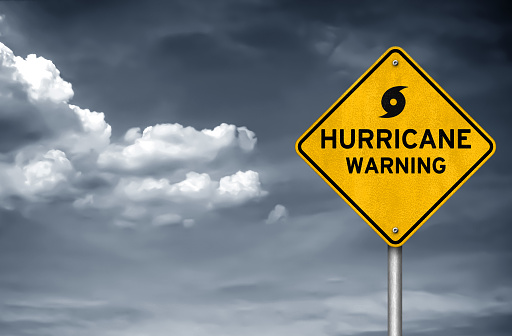Florida has more hurricanes and tropical storms than any other state. Hurricane season began June 1st and ends November 30th. Most hurricanes occur in August and September, so we’ve got a long season in front of us.
In 1992, Hurricane Andrew caused $26 billion in damage in south Florida. It destroyed 28,000 homes and damaged 107,000 others. Hurricane Irma caused $50 billion in total damages in 2017. In 2018, Hurricane Michael caused $25 billion worth of damage in the US. The majority of that damage was in the Florida panhandle.
Preparing for hurricanes is difficult but doable. Make sure your house and family are fully insured and ready for the busiest months of the season.
-
Secure Your Home
- Cover windows and glass doors with hurricane shutters or wood.
- Use straps or clips to fasten your roof to the structure of your home.
- Install bolts at the top and bottom of exterior doors to prevent them from being blown open.
- Clear drains and gutters to lessen the chance of roof leaks.
- Test your sump pump to make sure it works, and have backup batteries on hand.
- Seal and caulk exterior openings such as cable entry-points, vents, or electrical outlets.
- Reinforce your garage door to help it withstand hurricane season’s high winds.
-
Secure Your Yard
- Trim trees and shrubs to make them more compact and wind-resistant.
- Tie down small trees and shrubs, to prevent them from uprooting.
- Move any loose furniture or other items, such as a grill, indoors or into the garage.
- Replace gravel mulch with soft bark, to prevent broken windows.
- Move any cars into a garage or sheltered area, if possible.
-
Organize Your Documents
- Keep contact info for key family members and all important documents — insurance papers, social security cards, passports, credit cards, car titles, critical medical records, etc.—in a waterproof bag. Keep that bag with you (or handy during hurricane season) at all times.
- Take photos of the exterior and interior of your home and cars. While you’re at it, snap a picture inventory of big ticket items like expensive appliances and electronics. Store these photos in the cloud, so that you can access them even if your phone or computer is damaged. These photos will be helpful if you need to file an insurance claim.
-
Make a Hurricane Kit. You Will Need:
- A three day supply of food and water for every family member, including pets.
- A week’s worth of prescription drugs.
- Flashlights.
- Extra batteries.
- A battery-powered radio.
- Diapers and personal hygiene products.
- A cell phone, charger, and portable power pack.
- Cash.
- A bag packed with extra clothes and sturdy shoes.
- Sunscreen and insect repellant
- A first-aid kit.
-
Stay Informed Throughout Storm Season
- Sign up to receive emergency alerts for your area. If an evacuation is recommended, GO. Don’t try to ride out the hurricane.
- If you can’t leave, this guide may help you prepare in the hours directly leading up to the storm.
-
Insure Your Vehicles and Property
- Make sure your cars have full coverage rather than just liability insurance.
- Insure all boats, ATVs, motorcycles, and any other vehicle you own.
- Talk to an agent about homeowners or renters insurance, even if you already have it. You want to make sure your policies will cover a total loss, should it come to that.
- Make sure your life insurance policy is up to date.
- Homeowners and renters insurance doesn’t cover flooding. If you don’t have flood insurance, purchase it now. The policy comes into effect 30 days after purchase, and you want active coverage before the peak of hurricane season in August.

